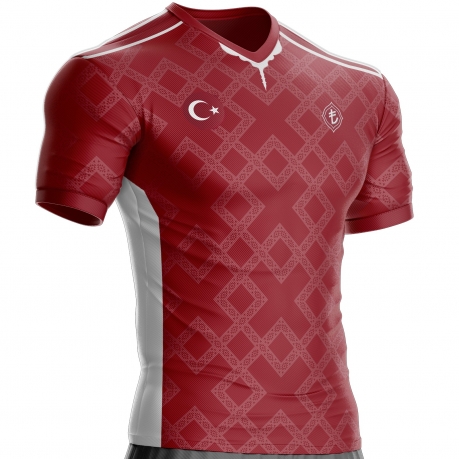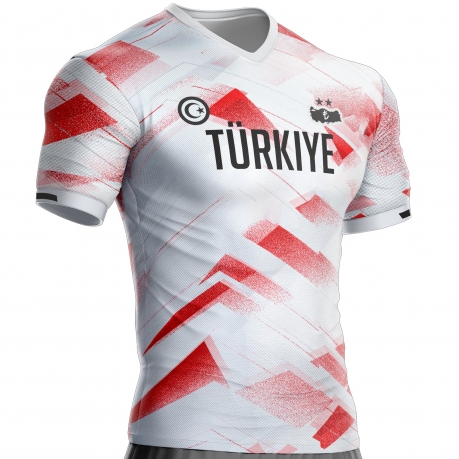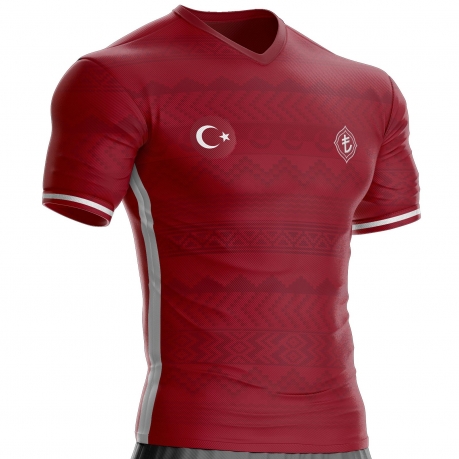Explanation of the rivalry of the Türkiye VS Greece football match

A hot derby: Türkiye-Greece, much more than just a football match
On October 12, 2005, Istanbul vibrates to the rhythm of a crucial match for qualification for the World Cup. The Ali Sami Yen stadium is in turmoil, with Turkish supporters proudly brandishing their red and white flags. The atmosphere is electric, tense, like the historic rivalry between Turkey and Greece.
This match is not just a simple sporting encounter. It is the symbol of an age-old tension between two nations with closely linked and often conflicting destinies. This is what we will explore in this article, by deciphering the origins of the Turkish-Greek rivalry and its impact on football matches between the two national teams.
Beyond the field, a tumultuous history
Centuries of political and religious confrontation have marked relations between Turkey and Greece. The fall of the Ottoman Empire and the Greco-Turkish War left deep wounds that still fuel a feeling of distrust and mutual animosity today.
Football, a mirror of tensions
Football then becomes a field of expression of this rivalry. The matches between the two national teams are often marked by exceptional intensity and heightened emotional stakes. Supporters, galvanized by nationalism, create an electric atmosphere in the stadiums, sometimes tinged with hostility and violence.
Is a peaceful future possible ?
Despite these tensions, initiatives exist to calm relations between supporters of the two camps. Gestures of fair play between players and calls for sporting fraternity nourish the hope of a healthier and more constructive rivalry.
Sport, a bridge between cultures ?
This article aims to explore the different facets of this complex rivalry. By retracing its history and analyzing its manifestations in the world of football, we hope to contribute to a better understanding of the issues and encourage dialogue between the two nations.
So, what will happen in the next Turkey-Greece match ? The fervor will undoubtedly be there. But perhaps, on and off the field, sportsmanship and mutual respect will ultimately triumph.
A tumultuous legacy: the roots of the Turkish-Greek rivalry
The shared history of Greece and Turkey is long and complex, punctuated by moments of collaboration and periods of conflict. It is in this historical context that the rivalry between the two nations finds its roots.
1. The shadow of the Ottoman Empire
For more than four centuries, Greece was under Ottoman rule. This period left a profound mark on both countries, leaving a legacy of tensions and resentment. The Greek War of Independence (1821-1832) was the first milestone in an often conflictual relationship.
2. The Greco-Turkish War (1919-1922)
This deadly conflict crystallized the antagonisms between the two nations. Greece, encouraged by European powers, attempted to reconquer territories lost during Ottoman expansion. The Greek defeat and the Treaty of Lausanne (1923) had profound consequences, with population exchanges and persistent territorial tensions.
3. Political and cultural factors
• Ethnic and religious differences: Greece is predominantly Orthodox Christian, while Turkey is a Muslim nation. This fundamental religious difference is an important factor in the mutual perception of the two peoples.
• Territorial issues: The division of Cyprus, the status of the Aegean Islands and maritime claims in the Eastern Mediterranean are sources of continued tension between the two countries.
• Nationalism: Exacerbated nationalism in both countries fuels rivalry and makes dialogue more difficult.
In conclusion, the rivalry between Turkey and Greece cannot be understood without a thorough knowledge of the shared history of the two nations. Key events of the past, such as the fall of the Ottoman Empire and the Greco-Turkish War, have left deep traces that continue to influence relations between the two countries.
The next chapter will look at the impact of this historic rivalry on the football field.
Football, a field of passionate confrontation
The Turkish-Greek rivalry finds new expression on the football field. The first official meeting between the two national teams took place in 1954, and since then, each match has been experienced as a major event by supporters of both sides.
1. High tension matches
Several meetings have remained engraved in memories because of their intensity and their symbolic importance. Greece's victory in the quarter-finals of Euro 2004, after a close match and a decisive penalty, is a striking example of the emotional impact of these confrontations.
2. Emotional stakes and electric atmosphere
For Turkish and Greek fans, matches against the rival team are of great importance. They are an opportunity to demonstrate patriotism and celebrate national identity. The atmosphere in stadiums is often electric, sometimes tinged with hostility and violence.
3. Behavior of supporters: between passion and excesses
Nationalism and chauvinism can influence the behavior of supporters, leading to hostile chants, insults and provocations. Unfortunate incidents have punctuated the history of this rivalry, highlighting the need for dialogue and better mutual understanding.
In conclusion, football has become a privileged field of expression for the rivalry between Turkey and Greece. The symbolic importance of these matches and the excitement of the supporters create an electric atmosphere which can sometimes overflow.
The question then arises: is it possible to overcome these tensions and envisage a healthier and more constructive sporting rivalry ?
This is what we will explore in the next part.
Overcoming rivalry: towards healthy sporting competition ?
Despite the tensions and regrettable incidents, initiatives exist to calm relations between Turkish and Greek supporters.
1. Initiatives to ease tensions
• The football federations of both countries have implemented education and awareness programs to promote fair play and mutual respect between supporters.
• International sports organizations, such as UEFA, are also involved in promoting constructive dialogue between supporters of the two teams.
2. Examples of fair play
• Gestures of fair play between Turkish and Greek players illustrate the possibility of a healthy and respectful sporting rivalry.
• Actions of brotherhood and solidarity between supporters of both camps, although less publicized, exist and deserve to be encouraged.
3. Looking to the future
The positive development of the rivalry between Turkey and Greece on the football field is possible. This requires continuous dialogue, concrete initiatives to ease tensions and the promotion of fair play and mutual respect.
Sport has the power to bring people together and overcome political and cultural divides. By encouraging a healthy sporting rivalry between Turkey and Greece, we can contribute to building a more peaceful and fraternal future between the two nations.
In conclusion, the Turkish-Greek rivalry on the football field is complex and multidimensional. While tensions and regrettable incidents should not be ignored, it is important to highlight initiatives and examples of fair play that nourish hope for positive developments.
Sport can be a bridge between cultures and a factor in bringing people together. By encouraging dialogue and mutual respect, we can help transform this rivalry into a healthy sporting competition, a source of enrichment and positive emotions for supporters of both camps.
towards sibling rivalry
In conclusion, the rivalry between Turkey and Greece on the football field reflects a complex and tumultuous history. Key events from the past, cultural differences and political tensions fuel heightened passion during matches between the two national teams.
Despite the unfortunate incidents, initiatives exist to ease tensions and promote healthy sporting rivalry. Dialogue, mutual respect and fair play are the keys to positive development towards fraternal competition.
Sport has the power to bring people together and overcome divisions. By encouraging mutual understanding between Turkish and Greek fans, we can help transform this rivalry into a source of enrichment and positive emotions for both nations.
So, the next time the national teams of Turkey and Greece meet on the field, let's hope that sportsmanship and brotherhood prevail over tensions and antagonisms.
May football be a bridge between cultures and a symbol of a more peaceful future between Turkey and Greece.







